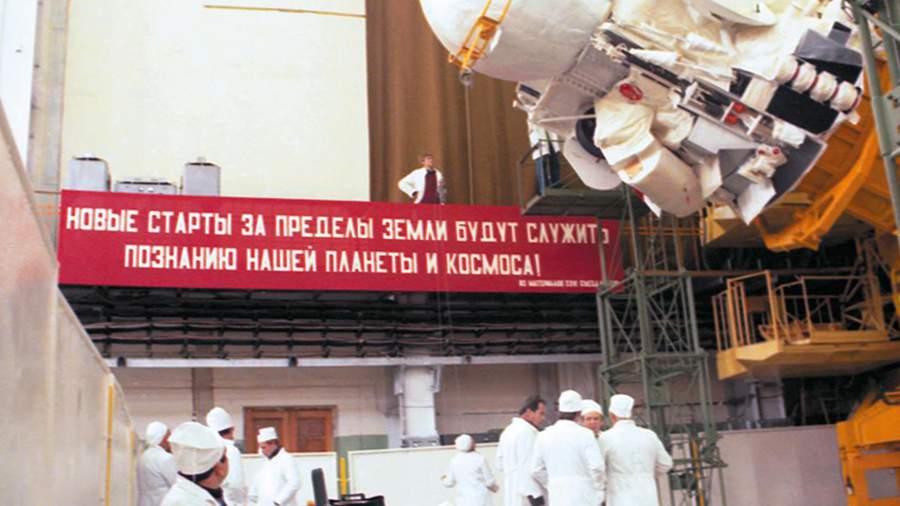"Roscosmos" declassified documents for the 40th anniversary of the launch of interplanetary stations "Vega"
- Новости
- Science and technology
- "Roscosmos" declassified documents for the 40th anniversary of the launch of interplanetary stations "Vega"

"Roscosmos" on December 15 published declassified documents of the research program of interplanetary stations "Vega", timed to the 40th anniversary of their launch.
"40 years ago, on December 15, 1984, from the Baikonur Cosmodrome launched a Proton-K carrier rocket with the automatic interplanetary station Vega-1, and six days later - another Proton-K with the Vega-2 station, which conducted research on the planet Venus and Halley's Comet," reads the statement published on the website of the state corporation.
The development of the scientific complex involved specialists not only from the Soviet Union, but also from Austria, Bulgaria, Hungary, Germany, Poland, Czechoslovakia and France.
It is specified that the road to Venus then was already well mastered by previously launched Soviet interplanetary stations, so the flight of the stations "Vega" was almost without complications. On the flight path scientific research was conducted, which included the study of interplanetary magnetic fields, solar and cosmic rays, X-rays in space, the distribution of neutral gas components, as well as the registration of dust particles.
The duration of the flight from Earth to Venus amounted to 178 days for the Vega-1 station and 176 days for Vega-2.
In the published materials "Roscosmos" also noted that the last communication session with "Vega-1" was held on January 30, 1987. Then experts recorded the complete exhaustion of nitrogen in the gas tanks. With "Vega-2" the last communication session was established on March 24, 1987.
"The Vega project was a triumph of domestic science and international cooperation in space research. Many scientific and technical breakthroughs were achieved in this project. Exceptionally complex was also the ballistic part of the program, which combined a flight to Venus and Halley's Comet," the report said.
Earlier, on December 9, the head of Roscosmos, Yuri Borisov, said that the scenario of the termination of the International Space Station (ISS) will be clarified with the arrival of the new NASA administration. According to Borisov, Russia is obliged to replace the Russian segment of the international station with its own to avoid a break in the manned flight program. At the same time, he emphasized that the Russian orbital station project, despite its name, is open and all friendly countries are invited to participate.
In September, Borisov said that Roscosmos and NASA will continue to work on the program of cross-flights to the ISS after spring 2025. The fact of continued cooperation in this area was also confirmed by the U.S. side.
Переведено сервисом «Яндекс Переводчик»
